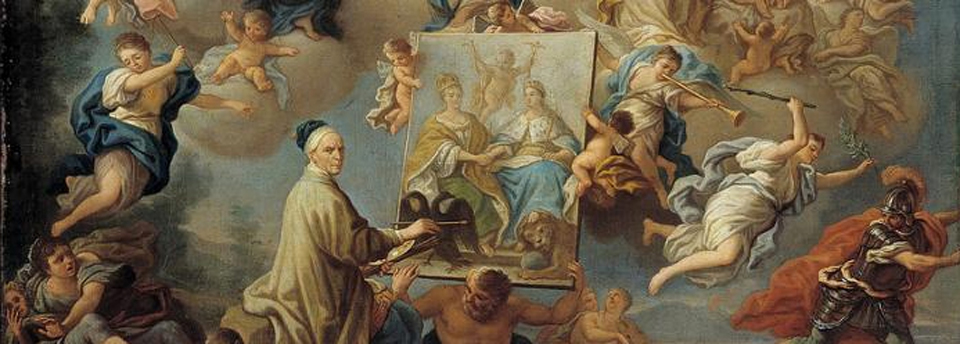Play Händel's 'Te Deum' – God be praised – which accompanies this article.
A successful compromise that changed the world
The Peace of Utrecht (Vrede van Utrecht in Dutch) marks a turning point in world history. On 11 April 1713, after eighteen months of negotiations, diplomats from all over Europe concluded a peace treaty in the Utrecht city hall, which had enormous consequences for the countries involved and their possessions overseas. It ended a series of devastating wars in which religious persecution and the pursuit of political power went hand in hand.They arrived in Utrecht in late January 1712 on horseback and in carriages, bumping through snow, mud and ice; diplomats from Spain, from the court of the Sun King Louis XIV, on behalf of the Habsburg Emperor, from Savoy, Portugal and Great Britain and, from not so far, the representatives of the Republic of the Seven United Provinces. All of them with one objective in mind: agreements about the division of regions – and thus power – which would result in long-term peace for all those involved. And they succeeded.
To Battle!
The Peace of Utrecht ended two centuries of religious strife and bloody wars with huge numbers of civilian victims. On the one hand, the Catholic sovereigns wanted to let 'the true religion' prevail by wiping all Protestants off the map. On the other, they put up a grim struggle for the political power in Europe. When in 1700 the King Charles II of Spain died without leaving any children, Louis XIV of France saw his chances. But the Habsburg Emperor as well loudly announced that his family was entitled the Spanish throne and along with this all Spanish possessions in and outside of Europe. The surrounding countries became quite nervous about the idea of the French taking off with the Spanish inheritance, which would provide them with enormous power. That is why, with considerable foresight, Vice Regent William III – also the king of England – had forged a broad coalition that took the German side during the War of the Spanish Succession. 'You are in league with the heretics!' Louis blamed his Catholic Habsburg rival. But he himself did not hesitate to finance the Sultan of Istanbul and support him in the Balkan and the Mediterranean Sea.
An honorable way out
Because all parties possessed overseas territories, battles took place all over the world, from North America to Latin America and the Caribbean, in India and along the coast of West Africa. On the European battlefield, the British General John Churchill – ancestor of the famous Winston Churchill – notably halted the French armies in their push.After ten years of increasing and decreasing violence, Louis XIV acknowledged the fact that he could not win, and the opposite party realized that peace was impossible without an honorable way out for the French king, who would always remain a factor of importance. Prior to 1713, for an extended period of time, Europe was the backdrop of vast devastation, persecution and massacres comparable to Rwanda or Srebrenica. It lasted until about 1850 for some regions in Germany to regain their population of before the Reformation.
Acceptable for everyone
When the peaceful Tories won the elections in Great Britain, they moved quickly. The British took their allies completely by surprise with the announcement about an agreement in principle with the French. We do not exactly know why they chose Utrecht to elaborate the peace treaty. England was out of the question because this would be humiliating for the French, but the Republic was acceptable and Utrecht practical because of its central location, which made it easy to visit for everyone and the city had wide and carriage-friendly streets. This location was also a gesture of goodwill to the French king who had good memories of Utrecht: when he showed up at the gates in the year of disaster 1672, the regents welcomed him with the keys to the city.





